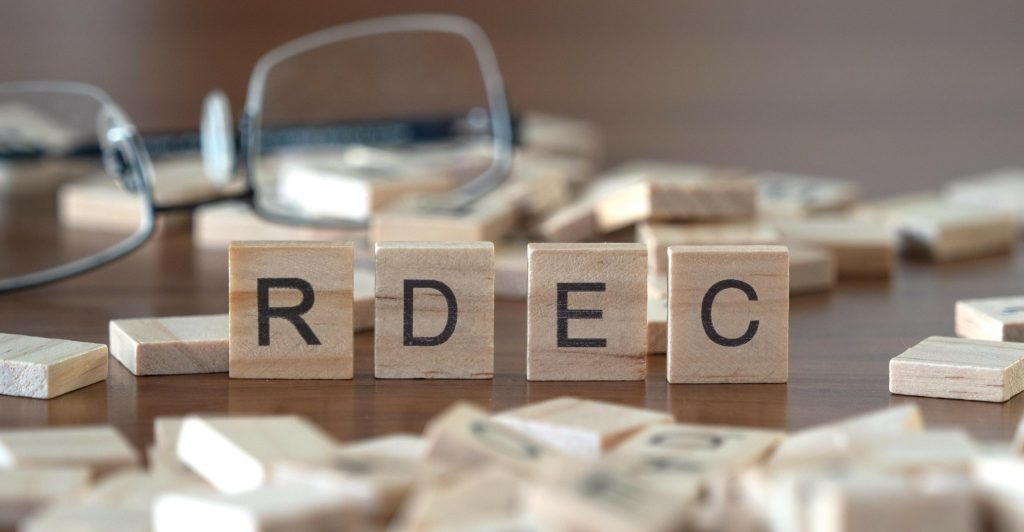


Callum Dennis
R&D Tax Consultant
The UK Government’s Research and Development Expenditure Credit (RDEC) Scheme serves as a pivotal initiative to promote innovation by offering tax incentives to companies engaged in qualifying research and development activities. While predominantly tailored for larger companies, there are specific scenarios where Small and Medium-sized Enterprises (SMEs) in the UK can leverage TBAT Innovation’s expertise to claim benefits through the RDEC Scheme.

Expert Guidance on Qualifying R&D Activities
TBAT Innovation specialises in guiding companies, including SMEs, through the complexities of R&D tax incentives. Collaborating with TBAT Innovation ensures that SMEs accurately identify and document qualifying R&D activities eligible for the RDEC Scheme. With HMRC taking a heavier approach to sifting out ineligible claims, it is becoming more important that thorough efforts are taken to ensure the qualifying thresholds are met and only allowable costs are considered. TBAT Innovation gives you the confidence that the costs being claimed are both optimised and fully allowable by HMRC.
Maximising R&D Claim Benefits
Through tailored consultancy services, TBAT Innovation assists SMEs in maximising R&D tax claim benefits. Their expertise in navigating the nuances of R&D tax relief allows SMEs to optimise their claims within the RDEC Scheme’s framework. TBAT Innovation spends time to learn about your company and your work, to fully understand and appreciate your R&D efforts. From this, TBAT Innovation ensure that the technical report supporting your claim is clear and objective, demonstrating to HMRC how your R&D claim meets the criteria they have set out.
Detailed Documentation Support
TBAT Innovation’s services include aiding SMEs in maintaining comprehensive records aligned with HM Revenue and Customs (HMRC) requirements. Thorough documentation outlining the R&D process, expenses, and their direct contribution to innovation is facilitated by TBAT Innovation’s specialised guidance. TBAT Innovation have spent years developing their knowledge from thousands of successful claims, culminating in concise support for any potential questions that HMRC may have should this be required in the claim process.
Should HMRC deem it necessary, they may request further details regarding the financial or technical aspects of an R&D claim, on elements that a company may not have considered previously. TBAT Innovation can assist companies, advising on key aspects that should be monitored and documented throughout the financial year, giving confidence that records and bookkeeping have been considered for HMRC requirements.

Collaborating with TBAT Innovation offers SMEs the opportunity to confidently explore R&D tax relief claims through the RDEC Scheme.
Identifying Eligible R&D Activities:
With TBAT Innovation’s support, SMEs can accurately identify R&D projects meeting HMRC criteria for qualifying activities within the RDEC Scheme. Such qualifying activities include R&D projects that have been supported through grant funding or where these have been contracted out by large enterprises.
Grant funding is an incredibly beneficial option for companies who are requiring money up-front to support their R&D projects, however this can often be difficult to acquire, needing to compete against other companies for the funding opportunities. As well as R&D tax relief support, TBAT Innovation also offer services regarding support in grant applications and Grant Claims Management. Grant funding is often a clear demonstrator to HMRC that a claim is R&D eligible, with the grant documentation providing key information for an R&D claim. Whilst grant funding opportunities are open to larger companies, they are primarily aimed at SME’s and start-ups, offering support to the early stages of new innovate ideas. Whether a company is an SME or a large enterprise, an R&D claim through the RDEC scheme is the next logical step to secure funding to support further innovation.
One key difference between SME’s and large enterprises is that large enterprises are unable to claim subcontractor costs from limited companies. Due to this, in the situation where a large enterprises subcontracts work to an SME, it is the SME who is able to make a claim through the RDEC scheme. Of course, the SME needs to be undertaking qualifying R&D work themselves, but this allows funding to be claimed that would otherwise be lost due to HMRC rules. It is important to note that large enterprises are still able to claim subcontractor costs where the subcontractor is an individual, or where an Externally Provided Worker (EPW) is used.
Optimising Claim Benefits:
TBAT Innovation’s consultancy aids SMEs in optimising R&D claims within the RDEC framework, ensuring maximised benefits from eligible R&D activities. Learning about a company’s work, and fully understanding their efforts throughout the year ensures that all projects are considered and accounted for. With the enforcement of HMRC’s Additional Information Form (AIF) from August 2023, each project must be individually costed. TBAT Innovation work with companies to ensure that all costs are considered and the eligible costs substantiated, whether that be by using the grant information from the period, the company accounts or discussions with a company’s financial director.
Streamlined Claim Process:
SMEs can streamline the RDEC claim process with TBAT Innovation’s assistance, navigating the complexities and ensuring compliance. TBAT Innovation lead a supportive step-by-step process, confirming each aspect of a claims technical, financial and compliance requirements, leaning on numerous years of knowledge from successful claims to provide each company with personalised assistance. TBAT Innovation consist of experts from numerous fields, with years of experience who bets placed to ensure bespoke support for each companies situation, whether that be SME’s claiming through the RDEC process or in any other R&D or grant related matter.
While SMEs primarily benefit from the more favourable SME R&D Tax Relief, there are situations where the RDEC Scheme becomes a viable option. Collaborative projects, receipt of certain grants, subcontracted R&D, or surpassing state aid limits might lead SMEs to opt for RDEC.
Navigating the complexities of R&D tax credits can be daunting. Seeking professional guidance and advice, especially when considering which scheme to apply for, can ensure compliance and maximize the benefits available to SMEs engaging in innovative research and development.
Collaborating with TBAT Innovation empowers SMEs to make informed decisions, optimise R&D tax claims, and leverage available incentives to fuel innovation and growth.
The merged R&D scheme (effective for APs beginning on or after 1ST April 2024) has brought about seismic changes to how R&D tax claims are made. Effective for accounting periods beginning on or after 1ST April 2024, the new scheme brings with it new rules, regulations and rates. Explore the key changes and the impacts the merged scheme will have.

In a recent decision, a First-tier Tribunal denied R&D Tax Credit claims totaling £665,000 for Till Plus Ltd, citing issues with payment and the qualification of the work as R&D. Despite correct payments, the activities failed to meet R&D criteria due to inconsistent descriptions, lack of technological advancement, and insufficient evidence. Read the specifics of this case and how HMRC made this decision.

Assists organisations in accessing research and development grant funding across a range of UK and EU schemes and industry sectors.
Get In Touch